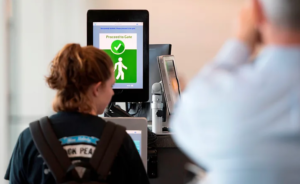Many international travelers will soon need to register for online authorization before landing in the UK or many EU countries.
Millions of travelers planning a trip to the UK will soon be required to register for authorization online before landing, even if they are transiting on their way to their final destination.
From 8 January 2025, visitors from the US, Canada, Australia and other non-European countries who do not currently require a visa for short-term stays in the UK will need to obtain an Electronic Travel Authorization (ETA) to enter the country.
To obtain an ETA, travelers must fill out an online form and pay a fee of £10 (about US$12.75). Applicants should hear whether their credentials have been approved within a few hours, although in some cases a decision can take up to three business days. The authorization applies to multiple entries into the UK for stays of up to six months and is valid for a period of two years or until the traveler’s passport expires – whichever occurs first.
But the new authorization isn’t just for non-Europeans: from 2 April 2025, EU citizens will also need to obtain an ETA before entering the UK. (Citizens of the UK, Ireland and those with a valid UK visa will be exempt.)
According to the UK government’s Home Office, the expansion of the ETA scheme (which previously only applied to citizens of seven Middle Eastern countries) aims to create a more streamlined entry system by verifying travellers’ qualifications to enter the UK before leaving their country of origin. When you board a flight to the UK, gate agents will verify your ETA status via a digital link to your passport, reducing time and confusion at border crossings. The Home Office also says biographical, biometric and contact information collected during the application process will help improve security by better tracking travellers’ movements.
“This expansion of ETA is an important step towards delivering an efficient border fit for the digital age,” UK Immigration and Citizenship Minister Seema Malhotra said in a statement. “Through light touch screening before people set foot in the UK, we will ensure visitors have a seamless travel experience while keeping our country safe.”

The UK’s ETA expansion is just one example of several new electronic entry programs being introduced around the world. Starting in spring 2025, the EU will require a new travel authorization for visa-exempt foreigners from 60 countries (including the UK, US, Canada and Australia) before they are allowed to enter the 30 EU countries. Similar to ETA, this new scheme, called the European Travel Information and Authorization System (ETIAS), allows short-term travelers to apply online, pay a small fee (€7 – about US$7.40 or £5.80) and It then requires applications to wait up to 96 hours for approval.
The EU is also preparing to launch a separate digital tracking initiative called the Entry/Exit System (EES), which uses facial and fingerprint scans instead of passports to identify non-EU citizens. Unlike ETIAS, this new security measure (which was scheduled to go into effect in November 2024 but was postponed until sometime in 2025) does not require travelers to apply for anything before starting their trip. Instead, travelers will be registered when they enter any of the 29 EU countries that use the system.
According to the EU’s travel information website, the aim of the EES is to modernize border crossings and speed up long immigration lines, which have increased with post-pandemic travel demand. Like other digital entry systems that have been implemented for years around the world, such as in the US, Canada and Australia, the new entry system aims to combat identity fraud and overstaying in the EU.
More like this:
• How is digitalization revolutionizing the travel industry?
• What is it like to live in the world’s most innovative countries?
• Digital aircraft: How technology is reshaping air travel.
However, not everyone is happy with the increasing digitalization of the border entry process. Critics of the expanded ETA scheme worry that the extra processing and fee will be a barrier to younger and less affluent travellers. Others worry that as nations and regions continue to move toward online entry forms, they may no longer be able to get passport stamps that have long held a sentimental place among travelers. There is also a general concern about what would happen in the event of a technology glitch.
“I’m sad and worried at the same time about the digitalization of travel,” says Kita Jean, a frequent traveler and member of the Nomadness Travel Tribe, an online community for travelers of color. “Passport stamps are a great way to document memories and look back, but they also work when processes and technology fail.”